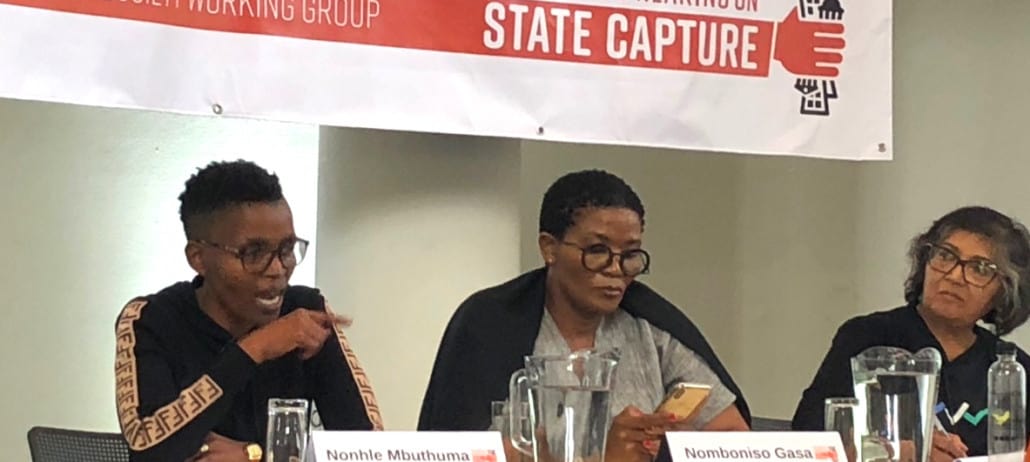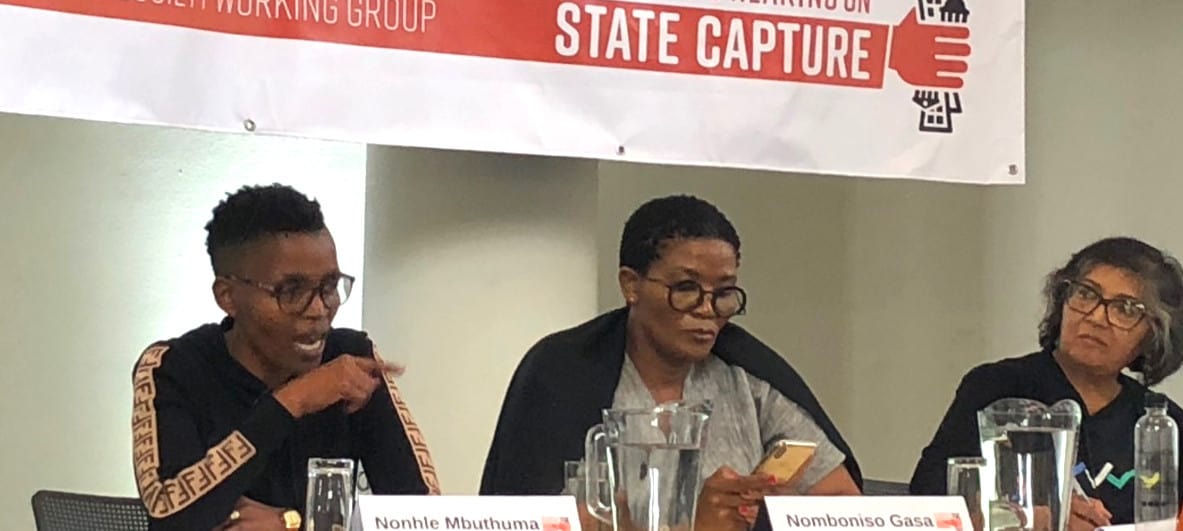The Civil Society Working Group on State Capture together with concerned South Africans hosted a people’s hearing at Constitution Hill on Saturday 12 October 2019, to highlight concerns around corruption, looting and crime which the Zondo commission on state capture will be asked to address.
The deaths of school children who died while using school toilets because of the lack of urgency of building safer ablution facilities was an issue highlighted at the hearing, and the mismanagement of funds at state-owned entities, which cripples the economy of the country.
Audience member Kevin (a Johannesburg high school learner) asked how was it possible that when you call the emergency number you are then put on hold by the operator. “How can 10111 be an emergency number, but when you call them they all you hear is ‘your call is now on hold’?”
The death of Michael Komape, which sparked an international outcry, should have served as a reminder that it was urgent for the South African government to prioritise the end to the use of pit toilets in public schools, especially in rural and semi-rural areas where the pit toilets are still being used.
Komape, who was five years old at the time of his horrific death, fell into a pit toilet at his school and drowned. He was one of many children who still have to use a pit toilet even though the United Nations Children’s Fund (UNICEF) urges governments to eradicate pit toilets altogether.
Another learner, five-year-old Lumka Mkhethwa of Mbizana, was robbed of her life when she also fell into a pit toilet in March last year. Meanwhile, Komape’s case has been dragging on for years, putting his family through the trauma again and again – especially his mother, Rosina, who saw his hand peeping from the toilet seat.
It has been five years since his death, but media reports suggest children are still dying because of failure by the education department to build safer ablution facilities.
Leaders must be held to account
The Civil Society Working Group on State Capture is a coalition of over 20 civil society organisations and it recognises that the Zondo commission on State Capture in South Africa is currently doing the important work of providing evidence of state capture.
Corruption Watch, as one of the 20 civil society organisations, works with the coalition in seeking to assist and support the Zondo commission’s work. The Working Group provides evidence-based submissions that would help with the commission’s investigations to expose those involved in the capturing of the state.
What Saturday’s hearing sought to do is establish how the actions of powerful individuals who are implicated in orchestrating state capture affect the lives of ordinary people, our organs of state and state-owned entities.
“We, therefore, believe that we must also focus on the impact of state capture on the lives of the people who carry the burden of these crimes,” said the Working Group in a statement.
The People’s Hearing on State Capture intended to collect and provide evidence of the impact of state capture and corruption to the country’s law enforcement agencies as well as to the commission.
Citizens urged to participate
Citizens were urged to use the hashtag, #DearJudgeZondo, to tell their own stories of how corruption and crime committed by business people, political leaders, and big corporations have impacted their lives, by posting videos, pictures and messages on their social media.
The hashtag was also used as a tool to invite people to give their input on what needs to be done to address this.
These videos will be presented together with documentary evidence and film and activists’ testimonies reflecting on the impact of state capture.
The hearing was chaired by a panel comprising of political analyst and women’s rights activist Nomboniso Gasa, transitional justice expert Yasmin Sooka, and human rights defender and spokesperson for the Amadiba Crisis Committee Nonhle Mbuthuma who was tasked with receiving information brought forward by the public throughout the day and submitting this to the Zondo Commission.


